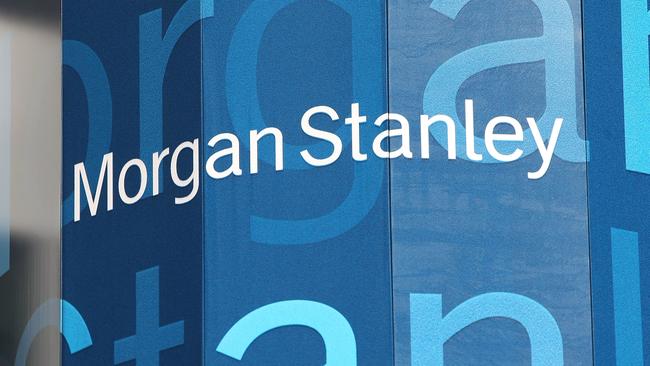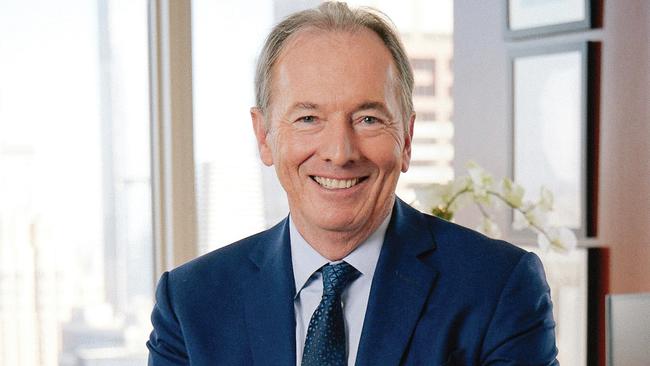Morgan Stanley wealth co-head Matthew Nicholls’ resignation linked to workplace conduct
Morgan Stanley Australia’s recently departed co-head of wealth management, Matthew Nicholls, resigned over concerns about his workplace conduct, sources say.

Morgan Stanley Australia’s recently departed co-head of wealth management, Matthew Nicholls, abruptly resigned from the firm over concerns about his workplace conduct, according to sources.
Four people with knowledge of the matter told The Australian Mr Nicholls’ conduct allegedly fell short of the investment bank’s stated policy, particularly around a relationship with a direct report, which may have contributed to his decision to resign.
Mr Nicholls declined to comment when asked about his resignation on Friday. A Morgan Stanley spokesman confirmed Mr Nicholls had left the firm.
“We have nothing further to add,” he said.
Mr Nicholls joined Morgan Stanley from Macquarie Group in 2008, as a senior manager in the firm’s asset servicing operations unit, his LinkedIn profile shows.
Up until being promoted about six months ago to jointly run the local wealth division, he was Morgan Stanley’s head of investment solutions.
After Mr Nicholls resigned this week, the joint local boss of Morgan Stanley wealth management, Rebecca Hill, took the reins as sole head of the unit.
The firm’s wealth business assists companies, institutions and high-net-worth individuals to build, preserve and manage their funds. Advisers from Morgan Stanley’s local wealth division have consistently in recent years made Barron’s list of Australia’s top 100 financial advisers.
Morgan Stanley has outlined a tough stance internationally on conduct and ethical standards in the workplace.

In a message to employees this year Morgan Stanley’s global chief executive, James Gorman, stressed the importance of the company’s code of conduct.
“Morgan Stanley’s culture, values and reputation differentiate us from our peers and have provided a strong foundation for our enduring success. As a global financial institution our reputation is our most precious asset. Once damaged or lost, it is very difficult to restore,” he said.
“The code of conduct outlines the standards of ethical conduct that we expect of every employee and that underlie our success.
“Please read it carefully and consider what it says. If you are aware of any actions that violate the code, we depend on you to speak up.
“We prohibit retaliation against anyone who makes a good faith report of known or suspected misconduct.
“We depend on you to challenge yourself and others to evaluate conduct through the lens of the firm‘s values.”
Within the code, Morgan Stanley stipulates: “You must avoid any investment, activity or relationship that could, or could appear to, impair your judgment or interfere with your responsibilities to Morgan Stanley and our clients.”
While consensual relationships within workplaces are not typically an issue, it’s a grey area when one party is the other’s divisional leader.
Investment banks have sought to clean up their image following the global financial crisis, as the industry, particularly in the US and United Kingdom, navigated the financial contagion.
Conduct issues are, however, not unique to any one firm in Australia.
Macquarie’s private wealth division was the subject of a damaging enforceable undertaking from the corporate regulator in 2013, after a string of compliance failures. That included allegations of shoddy practices and that Macquarie advisers and brokers were cheating on competency exams.
More recently, Jarden’s local operations were forced to conduct an investigation into the firm’s workplace culture after allegations of bullying. The probe saw Jarden declaring it took “considered and proportionate actions” in relation to the findings, despite three female employees leaving due to concerns about the firm’s culture.
Besides at Morgan Stanley, there have been changes at the top of other wealth firms in the past 12 months. JBWere and National Australia Bank’s private bank boss, Justin Greiner, left suddenly late last year.
He was replaced by NAB executive Michael Saadie as the local wealth sector continues to navigate a challenging environment in which investors digest 11 rate rises in the past 12 months and a macro economic slowdown.



